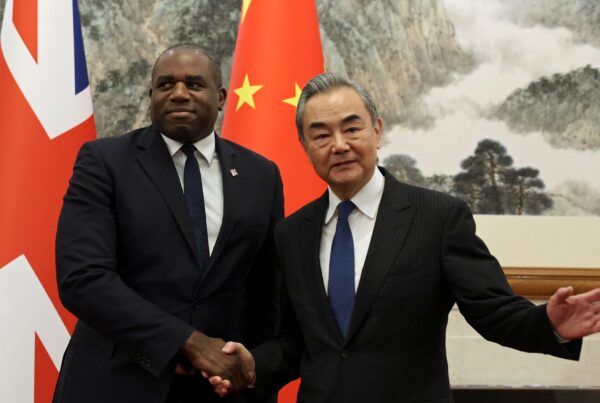SoftBank Nvidia divestment marks a new era for the Japanese conglomerate. In October 2025, SoftBank Group Corp. confirmed it had sold its entire Nvidia stake valued at US $5.8 billion, redirecting the funds into large-scale artificial intelligence (AI) ventures. The decision underscores founder Masayoshi Son’s ambition to position SoftBank at the forefront of the next AI revolution.
SoftBank’s Bold Shift Toward AI Dominance
Over the years, SoftBank has built a reputation for identifying technological megatrends early. The latest move selling its Nvidia shares reflects a strategic transition from passive ownership in major chip firms toward active development of its own AI ecosystem.
In its most recent earnings report, SoftBank posted a net profit of ¥2.5 trillion (≈ US $13 billion) for April–September 2025, a sharp recovery from prior losses. Revenue rose 7.7 percent to ¥3.7 trillion (≈ US $24 billion), thanks partly to gains from the Nvidia sale.
From Early Nvidia Backer to Full Exit
SoftBank first invested in Nvidia years before the AI boom, anticipating the growing demand for GPU computing. But as Nvidia’s valuation soared beyond US $3 trillion, Son saw an opportunity to lock in profits and redeploy capital.
Financial Times reported that the entire US $5.8 billion exit occurred quietly in October 2025. This sale, though small relative to Nvidia’s vast market capitalization, sparked a 1.3 percent dip in Nvidia’s share price following disclosure.
“This isn’t a retreat—it’s repositioning,” said one Tokyo-based analyst. “SoftBank is betting it can create more value by building AI infrastructure rather than merely owning Nvidia shares.”
Redirecting Capital to OpenAI and AI Infrastructure
SoftBank’s investment roadmap now revolves around AI infrastructure, including data centers, semiconductors, and collaborations with OpenAI and Arm Holdings its own chip design subsidiary. The company envisions constructing “AI factories” capable of powering generative models and advanced robotics.
Son has repeatedly emphasized his desire to transform SoftBank into an AI-first conglomerate. By exiting Nvidia, SoftBank gains flexibility to fund new ventures and reduce dependence on external chip suppliers.
Nvidia’s Market Impact and Investor Sentiment
The Nvidia stake sale raised questions about whether the GPU titan’s growth cycle is peaking. Despite stellar earnings and ongoing dominance in AI chips, investor confidence showed mild tremors after SoftBank’s announcement.
Market Reaction to SoftBank’s Exit
Following the disclosure, Nvidia’s shares slipped roughly 1.3 percent a modest but symbolic reaction. Analysts at Barron’s noted that institutional investors interpret such moves as signals of valuation caution amid record-high prices.
Still, Nvidia remains central to the global AI supply chain, with revenue from data center chips surpassing US $22 billion last quarter. The brief sell-off was quickly absorbed, suggesting that long-term sentiment remains bullish.
Broader Implications for the AI Investment Cycle
SoftBank’s move reflects a maturing AI capital market. Early investors are now cashing out, while new entrants seek exposure to the next wave AI infrastructure, sovereign AI projects, and edge computing.
Market observers view this as a “capital rotation phase” in AI. The focus is shifting from chip manufacturing to vertical integration building the tools, data systems, and applications that make AI usable at scale.
Masayoshi Son’s Vision for the Next Tech Epoch
Masayoshi Son’s leadership style is known for bold bets both spectacular wins and painful missteps. The Nvidia sale symbolizes yet another high-stakes pivot toward what he calls the “AI singularity decade.”
Lessons from the Vision Fund Era
SoftBank’s Vision Fund, once celebrated for massive tech investments, suffered major losses during the global tech correction. But Son appears undeterred. The Nvidia divestment replenishes SoftBank’s war chest for AI-focused reinvestment across the Vision Fund II and new venture vehicles.
Internal memos cited by Financial Times indicate that SoftBank will prioritize investments in foundational model developers, AI data infrastructure, and energy-efficient chip startups. The company is also rumored to be in talks to fund new AI clusters across Asia.
Japan’s Role in the Global AI Race
SoftBank’s renewed AI push could reinforce Japan’s ambition to reclaim leadership in advanced computing. Tokyo’s policymakers have supported private-sector initiatives aimed at building domestic AI capacity, particularly through partnerships between SoftBank, Arm, and major universities.
Analysts suggest that Japan could become a hub for AI data centers serving the wider Asia-Pacific region an effort mirroring the United States’ and Europe’s race for AI sovereignty.
H2: Profit-Taking or Strategic Reinvention?
Some market analysts interpret the Nvidia exit simply as profit-taking after record highs. Others see it as a calculated step toward independence in AI production and innovation.
Balancing Risk and Vision
SoftBank’s aggressive reinvestment strategy comes with risks. Building AI infrastructure requires billions in upfront capital, long lead times, and uncertain returns. Yet Son’s track record shows a willingness to embrace volatility in pursuit of transformative gains.
Financial experts warn that if the AI bubble cools, these bets could strain SoftBank’s balance sheet. However, Son counters that the potential upside of AI exceeds any prior tech revolution, calling it “the most significant paradigm shift in human history.”
Market Analysts’ Outlook
Most analysts remain cautiously optimistic. SoftBank’s strong cash position post-sale and ongoing stake in Arm Holdings provide a buffer for new ventures. The consensus view is that SoftBank is resetting for the next growth cycle, not retreating.
The SoftBank Nvidia divestment marks a defining moment for Masayoshi Son and the company’s strategic identity. Rather than clinging to a profitable asset, SoftBank is redeploying capital to chase what it sees as the next industrial revolution AI infrastructure and intelligence ecosystems.
Whether this bold shift yields another Vision Fund-style boom or becomes a cautionary tale of overreach remains to be seen. What’s certain is that SoftBank has once again placed itself at the heart of global tech transformation.
Read more insights about AI investments and market trends at Olam News.






